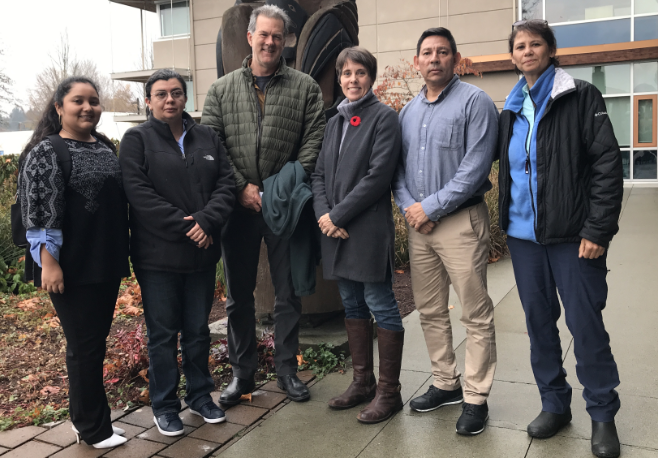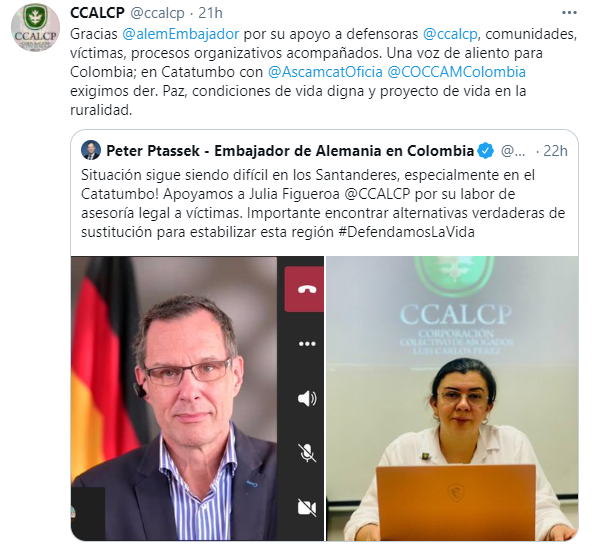Article by PBI-Canada

Photo: In November 2019, Julia Figueroa met with Sonia Furstenau, now the leader of the Green Party of British Columbia, and shared her concerns about the health, social and environmental impacts of the resumption of glyphosate spraying in Colombia.
When Julia Figueroa and Andrea Nocove from the Luis Carlos Perez Lawyers’ Collective (CCALCP) took part in a PBI advocacy tour in Canada in November 2019 they highlighted concerns about the forced eradication of coca crops in Colombia.
Earlier this week, Colombia Informa reported: “The peasant communities of Catatumbo, North Santander, reported that the National Army has been carrying out forced eradication operations for more than a week.”
And yesterday, the German Ambassador to Colombia tweeted: “The situation continues to be difficult in Los Santanderes, especially in Catatumbo! We support Julia Figueroa of @CCALCP for her work of legal advice to victims. It is important to find true substitute alternatives to stabilize this region.”
In response, CCALCP tweeted: “Thanks @alemEmbajador for their support of defenders @ccalcp, communities, victims, accompanied organizational processes. A voice of encouragement for Colombia; in Catatumbo with @AscamcatOficia @COCCAMColombia we demand peace, decent living conditions and life project in rural areas.”
Colombia Informa also notes: “Junior Maldonado, a member of Ascamcat, denounced at the end of January that the Ministry of Defense and the Anti-Narcotics Directorate informed the mayor of the municipality of Hacarí about the start of the Programme for the Eradication of Illicit Crops through Terrestrial Spraying from February 1 of this year.”
Latin America Reports has also noted: “Colombia could be just a few weeks away from restarting its controversial fumigation program that sprays the herbicide glyphosate from airplanes to try and kill coca plants, a government official said.”
“After halting the fumigation efforts in 2016, Colombia will again become the only country in the world to use the dangerous chemical via aerial spraying.”
That article adds that the Colombian government wants to resume aerial spraying in April.
The Programa Nacional Integral de Sustitución de Cultivos de Uso Ilícito (National Comprehensive Program for the Substitution of Illicit Crops) is a key part of the 2016 Peace Agreement between the Government of Colombia and the FARC.
The German newspaper Deutsche-Welle has previously highlighted: “By not giving farmers the help they need to make the transition, Isabel Pereira [an analyst with Dejusticia] believes the Duque administration is actively weakening the 2016 deal and threatening the possibility of a lasting peace.”
PBI-Colombia has accompanied CCALCP since 2006.


